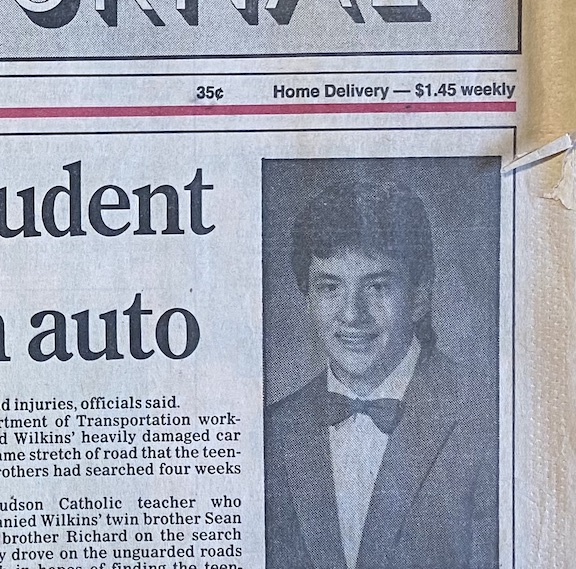Emily’s Way
Poetry still has a place in our lives
Every April, I send out a campus-wide email inviting my colleagues to celebrate Poetry Month with me. Those who sign up receive a poem in their inbox every work day that month. I don’t remember why I started this except that I like poetry and perhaps suspected that, like me, my colleagues would read more poetry if poems just showed up at their door (or the virtual equivalent).
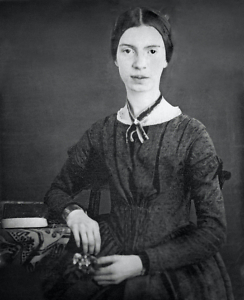 Hosting Poetry Month also gives me an excuse to buy books. Each year, I buy a new anthology for inspiration. It always leads me to poets I fall in love with, and then I buy individual collections: Tony Hoagland, Marie Howe, Ross Gay, and Charles Harper Webb have been recent favorites.
Hosting Poetry Month also gives me an excuse to buy books. Each year, I buy a new anthology for inspiration. It always leads me to poets I fall in love with, and then I buy individual collections: Tony Hoagland, Marie Howe, Ross Gay, and Charles Harper Webb have been recent favorites.
My most out-of-control poetry buying usually occurs at the Southern Festival of Books in Nashville. I’ll browse the Parnassus Books tent, picking up books from poets I just heard read from their work, such as Jeff Hardin, KB Ballentine, or Kory Wells.
“I can certainly use these for Poetry Month,” I’ll say to no one in particular, as if strangers might look askance at a person buying five books of poetry but not at a woman talking to herself. And why I feel a need to justify the buying of poetry when I have no such compunction about buying any other sort of book is a mystery.
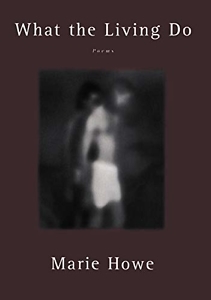 I don’t remember when I started the project. Occasionally, I’ll be leafing through the poetry titles on my shelves and find one with a handwritten date to the side of a poem. The earliest I’ve found is 2009, but I began before then. For the first few years, I simply put a small dot beside any poem I chose. At some point, when I knew I was going to continue the annual tradition, I decided it was useful to know which year a poem was shared with the group. After all, some of the participants in 2009 are no longer with the college, and those who are probably won’t remember a specific poem — or care if they did. A poem that spoke to me more than once can do the same for others.
I don’t remember when I started the project. Occasionally, I’ll be leafing through the poetry titles on my shelves and find one with a handwritten date to the side of a poem. The earliest I’ve found is 2009, but I began before then. For the first few years, I simply put a small dot beside any poem I chose. At some point, when I knew I was going to continue the annual tradition, I decided it was useful to know which year a poem was shared with the group. After all, some of the participants in 2009 are no longer with the college, and those who are probably won’t remember a specific poem — or care if they did. A poem that spoke to me more than once can do the same for others.
I don’t have a lot of rules about the poems I share. I don’t use a particular poet more than once in a given year. I try to include a diverse group of writers, including some I don’t know until I start perusing books and websites. During the pandemic, I’ve relied heavily on poems with themes of hope and resilience. In general, though, I leaf through my books until something about a particular poem stops me.
Pleasing myself seems to please the people who sign up. Some members of the group have received poems for more than a decade, and colleagues always express their appreciation when they respond to the yearly invitation. They know this is not the arena for criticism or argument.
Well, most of them know.
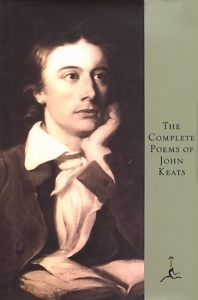 One colleague has signed up for years, but she is never happy with my choices. At some point, she will inevitably appear at my office door and ask why I’m not including Keats or Wordsworth or any of those lovely Romantic poets she learned in school. She thinks I’m prejudiced against the classics. Every year, I tell her that I love Keats, but people who sign up for poetry month probably already know his work. If they wish, they can go online and read his poems whenever they want. My goal is to share some poems my colleagues may not have met in school.
One colleague has signed up for years, but she is never happy with my choices. At some point, she will inevitably appear at my office door and ask why I’m not including Keats or Wordsworth or any of those lovely Romantic poets she learned in school. She thinks I’m prejudiced against the classics. Every year, I tell her that I love Keats, but people who sign up for poetry month probably already know his work. If they wish, they can go online and read his poems whenever they want. My goal is to share some poems my colleagues may not have met in school.
More than once, colleagues have sent me their own poetry to read. I’m never quite sure what to do besides thanking them for sharing. In some cases, it is clear they want me to make one of their poems the reading for the day. And this I don’t do. One of the benefits of my Poetry Month project being solely my responsibility is that I make up the rules as I go. And having to disappoint a colleague because their poem wasn’t chosen but another colleague’s was adds a stress I didn’t sign up for. That’s what editors do, which I am not.
Another woman sends me emails in response to the poems. “How is this a poem?” she asks. She is not asking to be snarky. She truly wants to know. Being a songwriter, she is used to writing within a form. A form that includes rhyme. And like me, she grew up in a small rural town at a time where the only poets we studied had been dead for at least 100 years and definitely used a lot of formal meter and rhyme.
I try to answer her, but never to her satisfaction. And, honestly, never quite to mine. Perhaps only Emily Dickinson ever came close to describing poetry: “If I read a book and it makes my whole body so cold no fire can warm me, I know that is poetry. If I feel physically as if the top of my head were taken off, I know that is poetry. These are the only ways I know it. Is there any other way?”
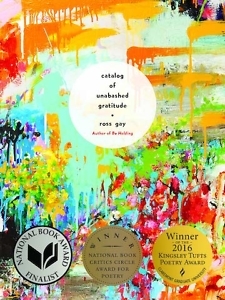 Emily’s way is true for me. I’ll be leafing through an anthology when I am just overwhelmed and have to put the book down and just be in the experience of the poem for a few, or many, moments.
Emily’s way is true for me. I’ll be leafing through an anthology when I am just overwhelmed and have to put the book down and just be in the experience of the poem for a few, or many, moments.
“And that can’t happen with rhyme?” my friend asks. “Or an essay?”
She’s not wrong, and she’s not satisfied with my explanation. I can’t blame her. But it’s as close as I get to an answer for her. Being a good sport, she keeps signing up each year.
In general, though, the faculty and staff who sign up for Poetry Month simply want to enjoy poems. Colleagues often email to say that a poem was especially beautiful, or made them cry, or was just plain weird. I love all the responses. What they are really saying is that poetry still has a place in their lives.
Years ago, I read a comment that said that poetry was now only written by M.F.A. students for other M.F.A. students. It was a depressing thought, but in my little corner of the world, it’s simply not true. Sure, there are English faculty who sign up each year, but so do history, surgical technology, culinary arts, business, and science faculty. Campus directors sign up. Staff members from IT, financial aid, student services, and the business office join in.
We’re just some regular people who love poetry. And as long as there’s a demand, I’ll supply it every day in April.

Copyright (c) 2022 by Faye Jones. All rights reserved. Faye Jones, dean of learning resources at Nashville State Community College, writes the Jolly Librarian blog for the college’s Mayfield Library. She earned her doctorate in 19th century literature at Indiana University of Pennsylvania.
